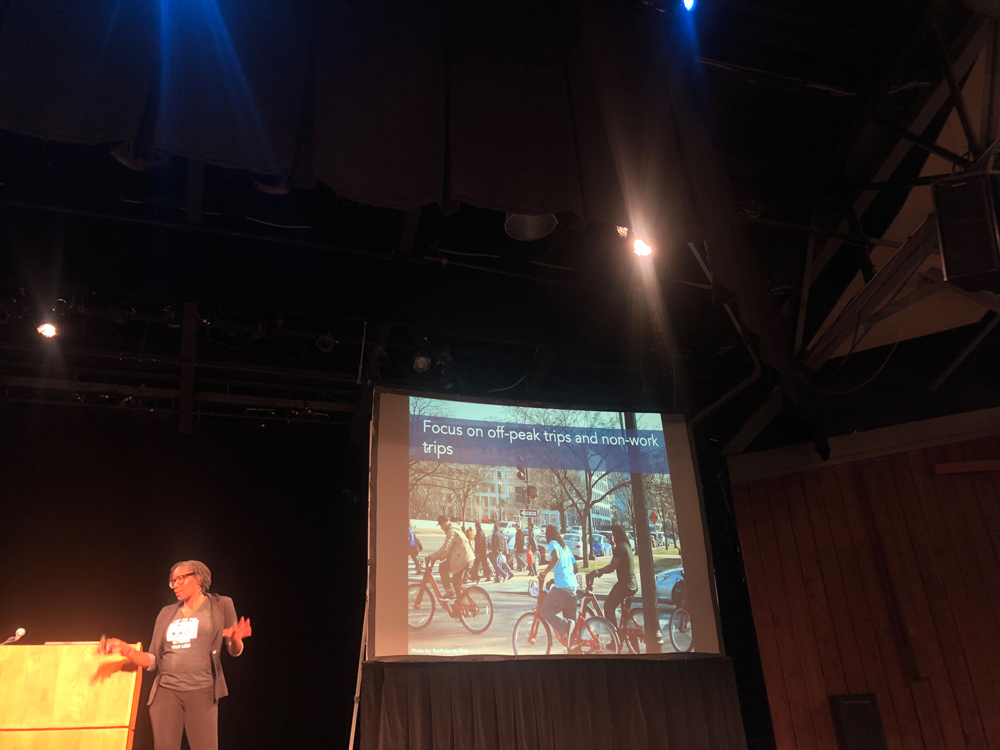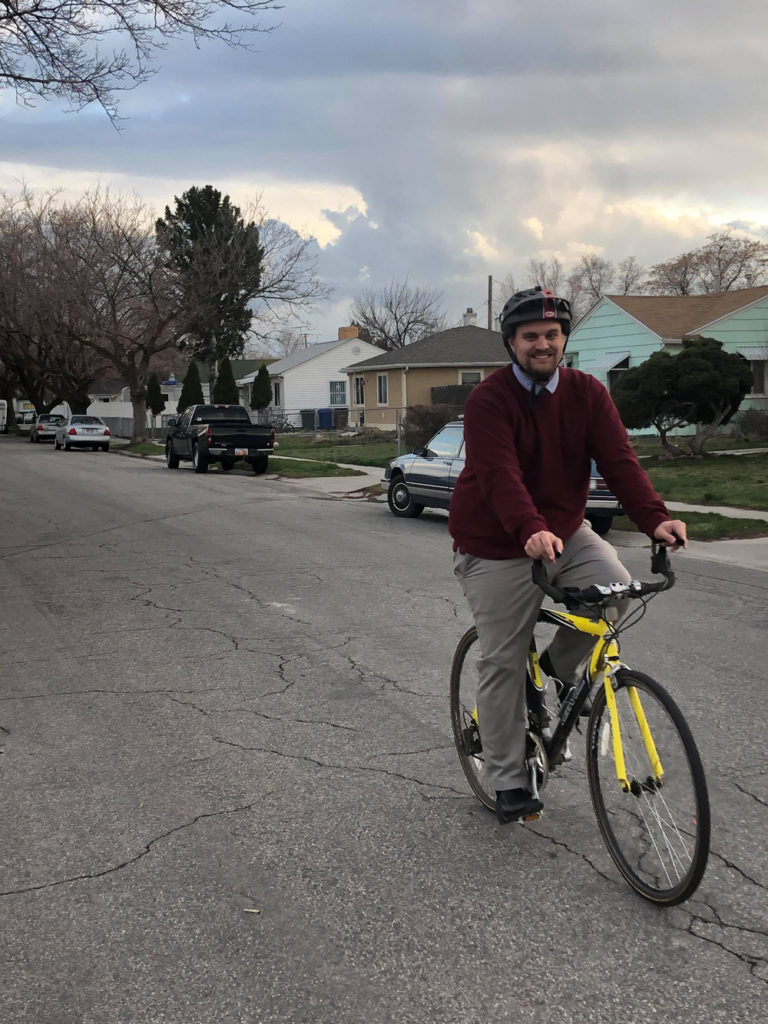By Turner Bitton — Last week I got my bike out, cleaned it, and performed all of the maintenance needed to prepare for my commute to work. This was my first time commuting to work by bicycle since I moved to a new home, in a new neighborhood, with a vastly different commute than I would have had even last year.

As a new resident of the Glendale neighborhood of Salt Lake City, I’ve got a new opportunity to explore urban environments that I previously hadn’t been exposed to. Commuting to work by bicycle is an amazing opportunity to see, smell, and hear the sounds of a growing city and changing community.
As I begin a new chapter of commuting to work in a new community, I’m reminded of the inspiring discussion led by Veronica Davis at the Utah Bike Summit on March 5th. Ms. Davis’s speech “Biking, Equity and Inclusion” was as inspiring as it was sobering. I’ve had a lot of time to reflect on the key themes and as I biked to work, the lessons she provided were brought to life in front of me as I rode.
Bicycling for me is a past-time, an opportunity to commute to a job that respects my desire to be healthy is willing to provide accommodation for me in commute by bike (in the form of schedule flexibility), and that largely celebrates my choice. I’m privileged to be considered a part of “the bike community” and have the opportunity to participate in the broader cycling community. I left the summit feeling absolutely dumbfounded by the ignorant way I’ve talked about cycling.
Equity – in the abstract it is a difficult ideal to define and even more difficult to refine in practice. To reflect on the lessons of decades of hard work by cycling advocates and community leaders leave us with a sense of awe but also a call to action for the future. It is no secret that bicycle infrastructure has been hard fought. Even today, important changes to transportation planning like the so-called “Road Diet” on 900 West in my neighborhood are cause for controversy.
Veronica Davis inspired me to reframe the way that I think about cycling – especially commuting – and equity. She helped me understand that cycling can be a great equalizer – that cycling defines and builds community when we are willing to do the hard work of addressing the inequities of our systems and infrastructure. Each of the key points of her presentation has left a lasting impression in my mind. Each has important lessons for our communities.
As I reflect on Ms. Davis’s presentation, here is what sticks out in my mind:
- Focus on understanding community needs. The needs of each community are fluid and responsive to change. The need to listen to viewpoints and include others is critical. I like to think of myself as a part of my community, but in many ways, I’m removed from the day-to-day reality of my community. Conversations with neighbors have only reinforced this and taught me some important humility.
- Expand the message. Much of our messaging about cycling focuses on the “problems” that the cycling community has identified as important to us. We must try to reframe cycling as a solution to the problems that our community faces rather than a niche issue. When we invest in cycling, promote it and love it, we have the opportunity to build community and address issues beyond cycling.
- Focus on supportive bike infrastructure. We tend to think of infrastructure in concrete (literally) terms instead of social terms. However, social infrastructure requires as much of an investment as physical infrastructure. Community councils, homeowners associations, parent-teacher associations, and other organized groups should invest time and energy in discussing the importance of cycling and how it solves problems.
- Focus on off-peak trips and non-work trips. So much of our dialogue focuses on commuter cycling and often centers on getting people from one place to another. We have to embrace cycling as more than a form of transportation, it is truly a form of social interaction. Leisure cycling and cycling untethered from the demands of day to day life provides a unique way to experience our community and recover a bit of solace in our complex world. It is okay to bike without purpose and to enjoy cycling for the sake of it.
Ms. Davis’s presentation has inspired me to try to think about cycling beyond my own worldview. As I think about the opportunities that we have to build community through cycling, I am grateful for the opportunity to have been challenged and to grow personally by Ms. Davis. As you get on your bike, try to get out of your own head and see the unlimited potential for cycling to heal the divides and pain in our communities. Cycling is about much more than transportation, it is an opportunity to bridge divides and build community.
Turner C. Bitton is an avid cyclist and is well-known for his commitment to public service. He lives in the Glendale neighborhood of Salt Lake City with his husband Chase and their two dogs Charley and Moose.



Your handlebars are backward, buddy.